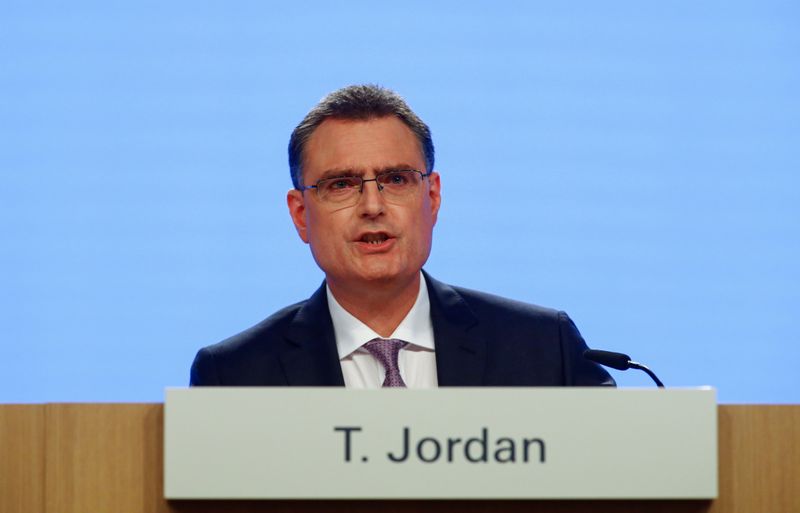By John Revill and Silke Koltrowitz
BERN (Reuters) - The Swiss National Bank will keep its ultra-expansive monetary policy for "some time" after cutting its inflation outlook and saying it needs negative rates and currency interventions to shield Switzerland from the coronavirus driven-recession.
Switzerland is facing its sharpest downturn in decades after the pandemic shut down many businesses, pushed up unemployment and dented demand at home and abroad.
The SNB expects Swiss GDP to shrink 6% this year, the worst downturn since the aftermath of oil price shocks in the 1970s, and sees no rise in consumer prices before 2022, and then by just 0.2%.
On Thursday the SNB kept its policy interest rate and the rate it charges on sight deposits at minus 0.75%, as unanimously expected by analysts polled by Reuters.
"I believe it will be necessary to maintain this expansionary monetary policy for some time," SNB Chairman Thomas Jordan said.
"We need a completely different outlook before we can change monetary policy, more inflation and also a much better economic outlook," he told journalists.
The Swiss franc weakened slightly against the euro after the decision. (EURCHF=)
The SNB's new conditional inflation forecast of below 2% over the entire forecast horizon, suggests it will hold the policy rate until at least the first quarter of 2023, said Credit Suisse (SIX:CSGN) economist Maxime Botteron.
At EFG Bank, economist GianLuigi Mandruzzato also said he did not see rates, which have been negative since 2014, rising until 2023 unless the recovery was much stronger than anticipated.
"The SNB maintains a clear dovish bias, leaving the door open to further accommodation, but not necessarily more negative interest rates, particularly if the risk of new (COVID-19) infections crystallises," he said.
In the meantime, analysts expect the SNB to keep restraining the Swiss franc mainly through increased currency interventions.
The safe-haven franc rose to its highest level against the euro in nearly five years last month, prompting the SNB to ramp up foreign currency purchases in order to protect the export-orientated economy.
Sight deposits - a proxy for SNB interventions - have risen by nearly 100 billion Swiss francs ($105 billion) this year, dwarfing interventions for the whole of 2018 and 2019.
Jordan said the central bank had made "substantial interventions" in recent weeks, and could continue to do so if necessary to maintain reasonable financial and monetary conditions.

"There is no specific limit ... we are forced to do that to bring inflation back over time to the range of price stability."